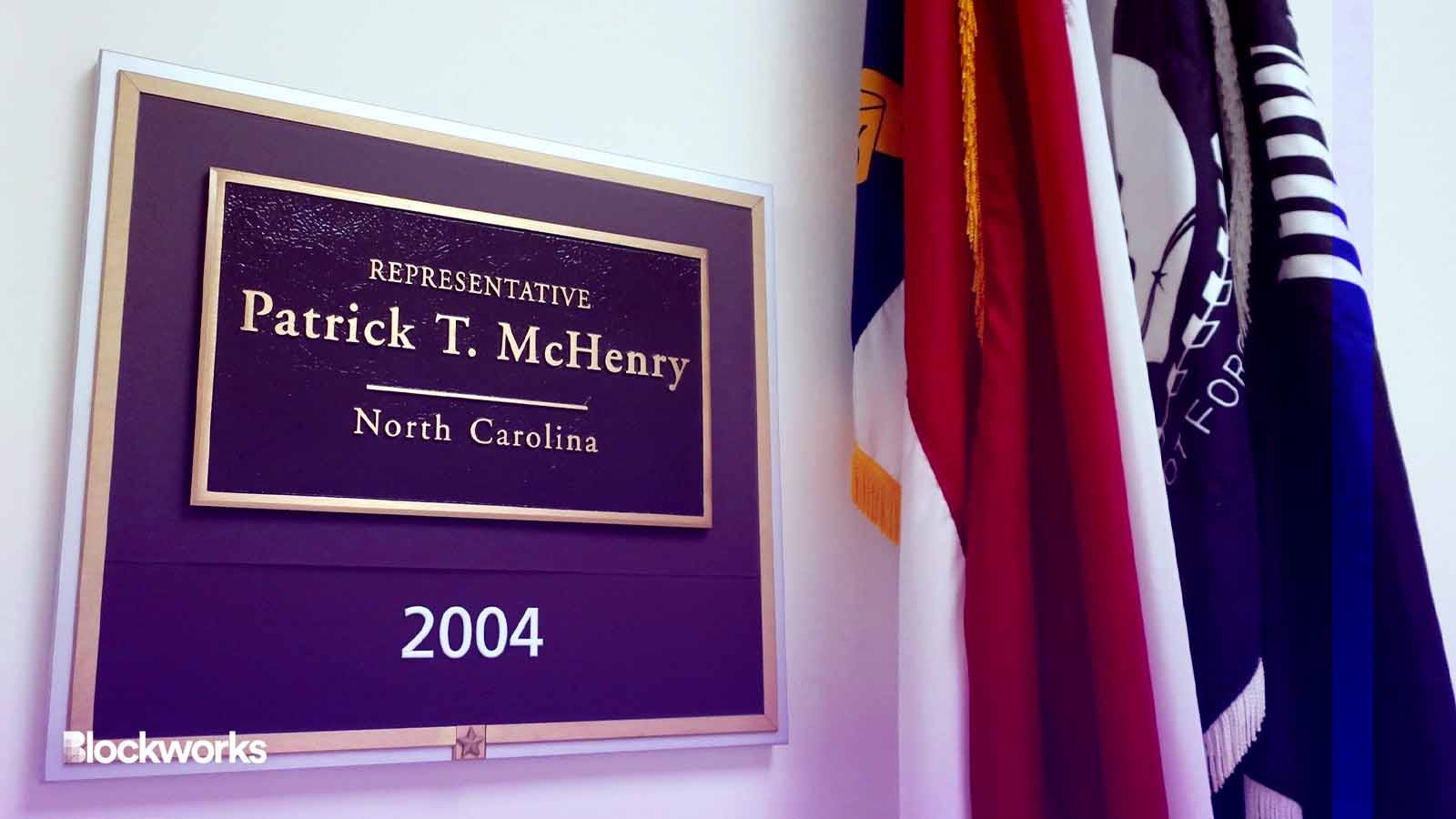McHenry questions timing of Prometheum’s special purpose broker-dealer approval
Gary Gensler and FINRA CEO Robert Cook have until August 22 to supply documentation on Prometheum’s approval to the House Financial Services Committee

DCStockPhotography/Shutterstock modified by Blockworks
Patrick McHenry R-N.C., Chair of the House Financial Services Committee, along with other members of Congress, sent letters to Robert Cook, CEO of the Financial Industry Regulatory Authority (FINRA) and US Security and Exchange Commission chair Gary Gensler on Tuesday.
McHenry asked Cook and Gensler to break down how Prometheum was approved as a special purpose broker-dealer. They also questioned the ties that Prometheum reportedly has to the Chinese Communist Party.
Legislators also asked about the timing of the approval, saying that it “raises concerns that it was aimed at demonstrating that legislation is not needed because there is a workable regulatory framework for the custody of digital asset securities.”
Prometheum was granted approval on May 17 of this year, and legislation was released on June 2.
In the letter to Cook, they asked FINRA to supply a briefing to the House Financial Services Committee by Aug. 22, though they’d appreciate a response as soon as possible.
In the letter, the Committee asked for the number of special purpose broker-dealer applications, how many applications have been denied, and what risks were assessed prior to approving Prometheum.
Additionally, politicians asked for documentation related to the application, and communications both within FINRA and with the SEC on the applications.
While the letter to the SEC did not include the same questions as McHenry posed to FINRA, it did request documents and communications related to the application.
“In fact, you have touted the Prometheum approval multiple times in public statements to support your position that digital asset firms can comply with the existing regulatory framework,” Committee members wrote to Gensler.
During his testimony to the Committee earlier this year, Aaron Kaplan, CEO of Prometheum, stated that 20% of his company is owned by Shanghai Wanxiang Blockchain Inc and that “according to SEC filings, a representative of that entity, Feng Ziao, serves as a director in Prometheum.”
Prometheum and Wanxiang entered into a 2018 agreement to develop blockchain trading software, but the agreement was later terminated.
“Prometheum’s former relationships with Wanxiang and its affiliates have been reviewed by the SEC, which closed its investigation, and CFIUS, which never opened up a formal investigation,” Prometheum said in an emailed statement to Blockworks.
“Prometheum purpose-built its technology with the goal to develop a market infrastructure for digital asset securities that is compliant with the federal securities laws. This technology will serve as a building block for a compliant and orderly digital asset securities marketplace that protects investors and serves their best interests.”
McHenry isn’t the only one concerned with the Prometheum approval. In July, Representative Ritchie Torres D-N.Y. asked the SEC to open an investigation into how the company — which “has not yet served a single customer” according to McHenry’s letters — was granted a license.
The Blockchain Association has also expressed its concern over the alleged “sweetheart” deal between Prometheum and the SEC.
Updated Tuesday, August 15 at 5:20 pm ET: Added statement from Prometheum
Start your day with top crypto insights from David Canellis and Katherine Ross. Subscribe to the Empire newsletter.





